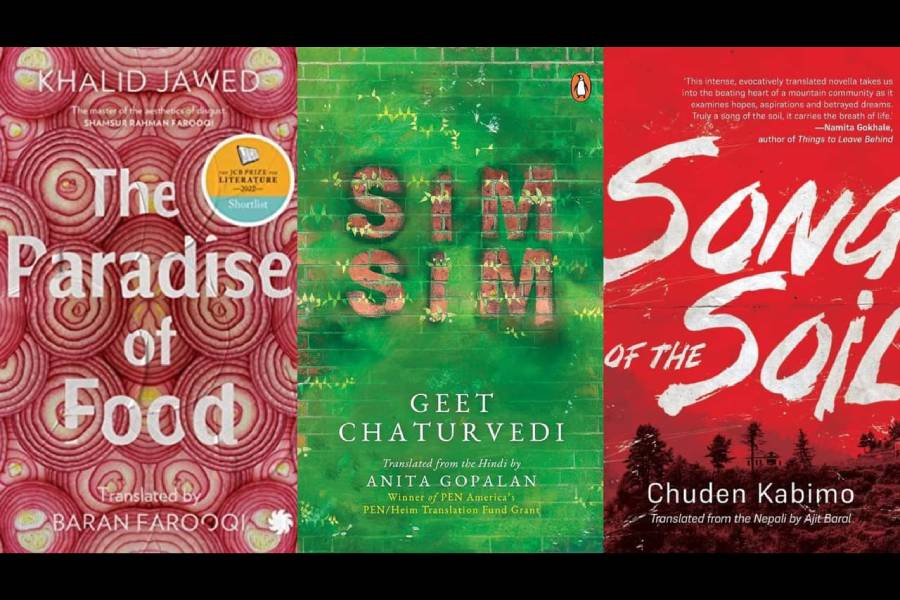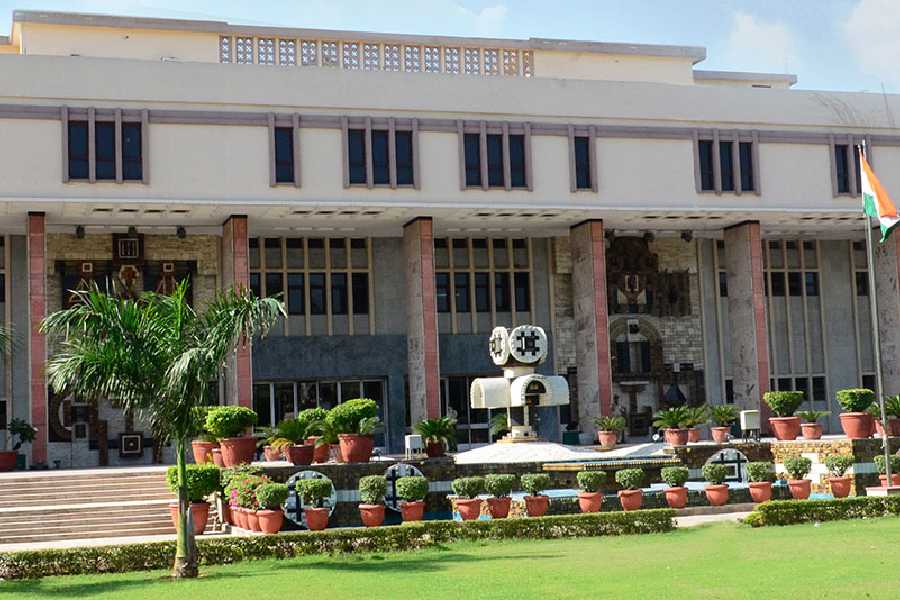Translations democratise the literary space and give a new lease of life to literary works in regional languages that otherwise get restricted readership. The focus on translations has increased in the last few years with entities like JCB Prize for Literature and others consciously working year after year to get content from regional languages in the mainstream. Geetanjali Shree’s International Booker Prize win for her Hindi novel Ret Samadhi translated by Daisy Rockwell to Tomb of Sand underscored the importance of non-English works. Today being World Translation Day, we list 10 recent English translations of Indian authors from different languages that one should read.
Tomb of Sand by Geetanjali Shree
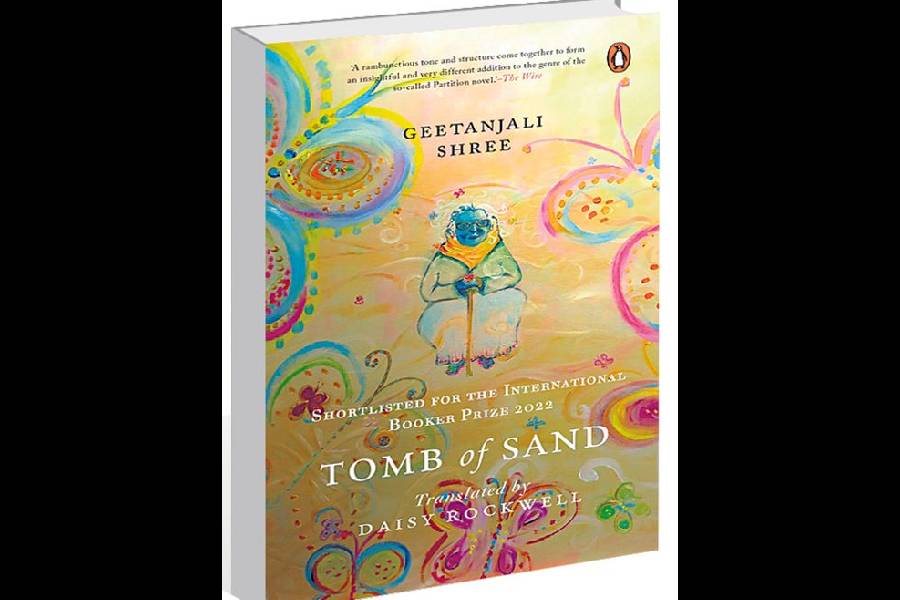
This book tops our list not just for being the only book in an Indian language to win the International Booker Prize but for giving the reader a sneak peek into Geetanjali Shree’s award-winning craft. Translated from Hindi by Daisy Rockwell, it gives a sense of fulfilment to read a story that centres around an octogenarian, who depressed with the demise of her husband takes a journey to her past in Pakistan. A slow read, Tomb of Sand brilliantly portrays the dark and sensitive emotion of the character and her surroundings and is to be savoured not in one sitting but over several months.
The Paradise of Food by Khalid Jawed

Though the English title of the book might make one think Urdu writer Khalid Jawed is talking about a country, a state or a region rich in culinary arts, the content relays his fresh outlook of a kitchen in a household as the centre of power. Translated by Baran Barooqi, Ne’mat Khana, published originally in 2014, follows the story of Hafizul Mohammed Babar or Guddu Mian, an orphan trying to find his place inside the house and the outside world. It’s interesting how Jawed makes his proposition of a kitchen as the ‘centre of power’ strong with his plot and how the reader becomes an accomplice in the multiple murders that take place in the story spanning 50 years.
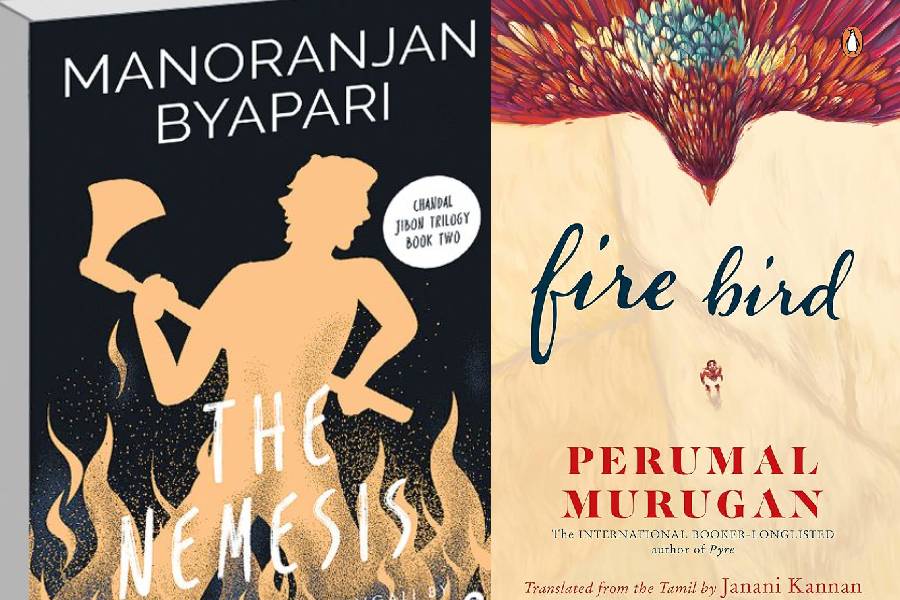
(l-r) The Nemesis, Fire Bird
Manoranjan Byapari’s The Nemesis: Bengali writer Manoranjan Byapari’s extraordinary trajectory in life has given birth to many books — Chhera Chhera Jibon, Ittibrite Chandal Jibon and the Chandal Jibon trilogy. He has lived life as a rickshaw puller, sweeper, porter, cook and now an author and MLA. His latest translation, The Nemesis translated from Bengali by V Ramaswamy, is a commentary on society and its structural evils. This extraordinary trilogy takes us into the late 1960s and early 1970s when the rumblings of liberation grew louder in East Pakistan and refugees came pouring into India, seeking asylum in the camps of West Bengal.
Fire Bird by Perumal Murugan: Translated from Tamil by Janani Kannan, Fire Bird comes from the stable of Perumal Murugan, an Indian author, scholar, and literary chronicler who writes in Tamil and has written 12 novels, six collections of short stories, six anthologies of poetry, and many non-fiction books. In this transcendental novel, Murugan draws from his own life experiences of displacement and movement and explores the fragility of our fundamental attraction to permanence and our ultimately futile efforts to attain it.
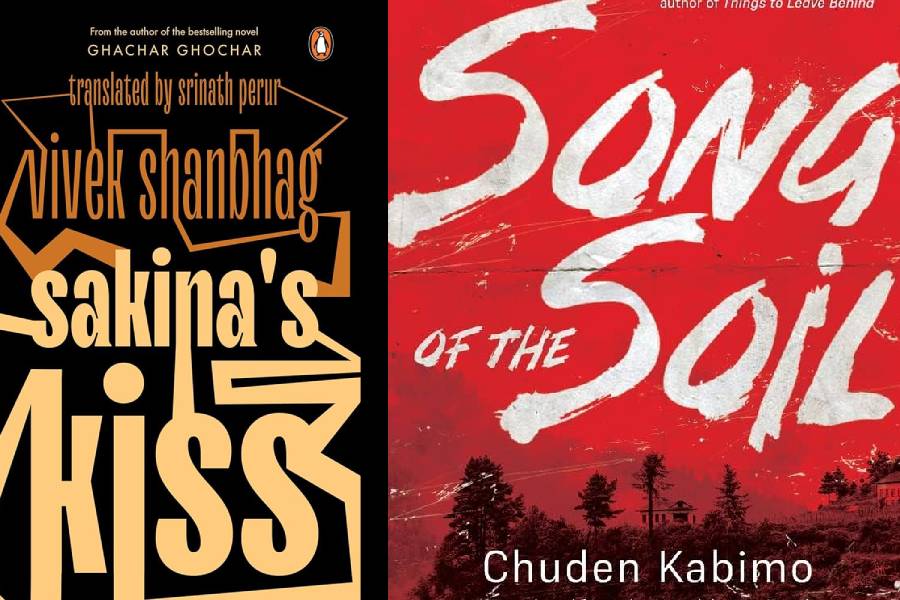
(l-r) Sakina’s Kiss, Song of the Soil
Sakina’s Kiss by Vivek Shanbhag: The latest translation to be released, Sakina’s Kiss is a thrilling story that makes you question the opposing opinions of old perceptions, and deeply rooted masculinity in the changing socio-political landscape. Kannada author Vivek Shanbhag ends the eight-year drought for his readers in English with a new novel translated by Sahitya Akademi Award winner Srinath Perur. The novel was originally published in Kannada in 2021 as Sakinala Muttu.
Song of the Soil by Chuden Kabimo: Song of the Soil by Chuden Kabimo, a debutant in the literary scene, translated from Nepali by Ajit Baral is a shining example of how one can write about a violent incident without recreating the violence. The author blends bildungsroman with a conflict story with great dexterity, bringing out new aspects of both forms. This book is able to make poetry out of brutal situations but does so with honesty, humour, and gentleness.
Subversive Whispers by Manasi

Originally written by Manasi, one of the finest voices of feminist literature in Malayalam, and translated by J Devika, Subversive Whispers is a bold and formidable anthology of stories on gender, relationships and anti-patriarchal society that questions and debates the political and societal opinions about gender, love, family and relationships. A collection of some of her best work, Manasi continues to defy patriarchy, question Brahminical hegemony and push narratives that subtly yet fervently challenge the status quo.
Valli by Sheela Tomy: Translated from Malayalam by Jayasree Kalathil, Sheela Tomy’s Valli is a beautifully written work that transports us into another time and place. It presents a world gone by in which the natural world is an extension of the human world. The prose has many textures, with letters and quotes from scriptures, making for a deeply satisfying read.
Rohzin by Rahman Abbas: Another Urdu writer on our list is Rahman Abbas. His book Rohzin translated from Urdu by Sabika Abbas Naqvi is a dramatic love story at the heart of it. Beyond that, it is also the story of a young boy moving to a big city. It presents parts of Mumbai, like Mohammad Ali Road, that are rarely seen in English fiction. The real and the fantastical, the contemporary and the ancient, mix seamlessly while the grand themes of Hindi cinema play out in the background.
Simsim by Geet Chaturvedi: Hindi writer Geet Chaturvedi’s Simsim is a Partition story. It is translated by Anita Gopalan, a writer, translator, and stock trader, and the recipient of a PEN/Heim Translation Fund Grant and a fellowship in English literature from the Ministry of Culture. With this book, Chaturvedi revisits the Partition, an oft-written event in literature, through the lens of a forgotten community, the Sindhis. The separation from their homeland is even more painful for the Sindhis in a way, since unlike Punjab and Bengal, no part of their homeland has a place in India. Sindh entirely belongs to Pakistan. Giving their pain a voice, the story provides a unique perspective and another layer to Partition.

